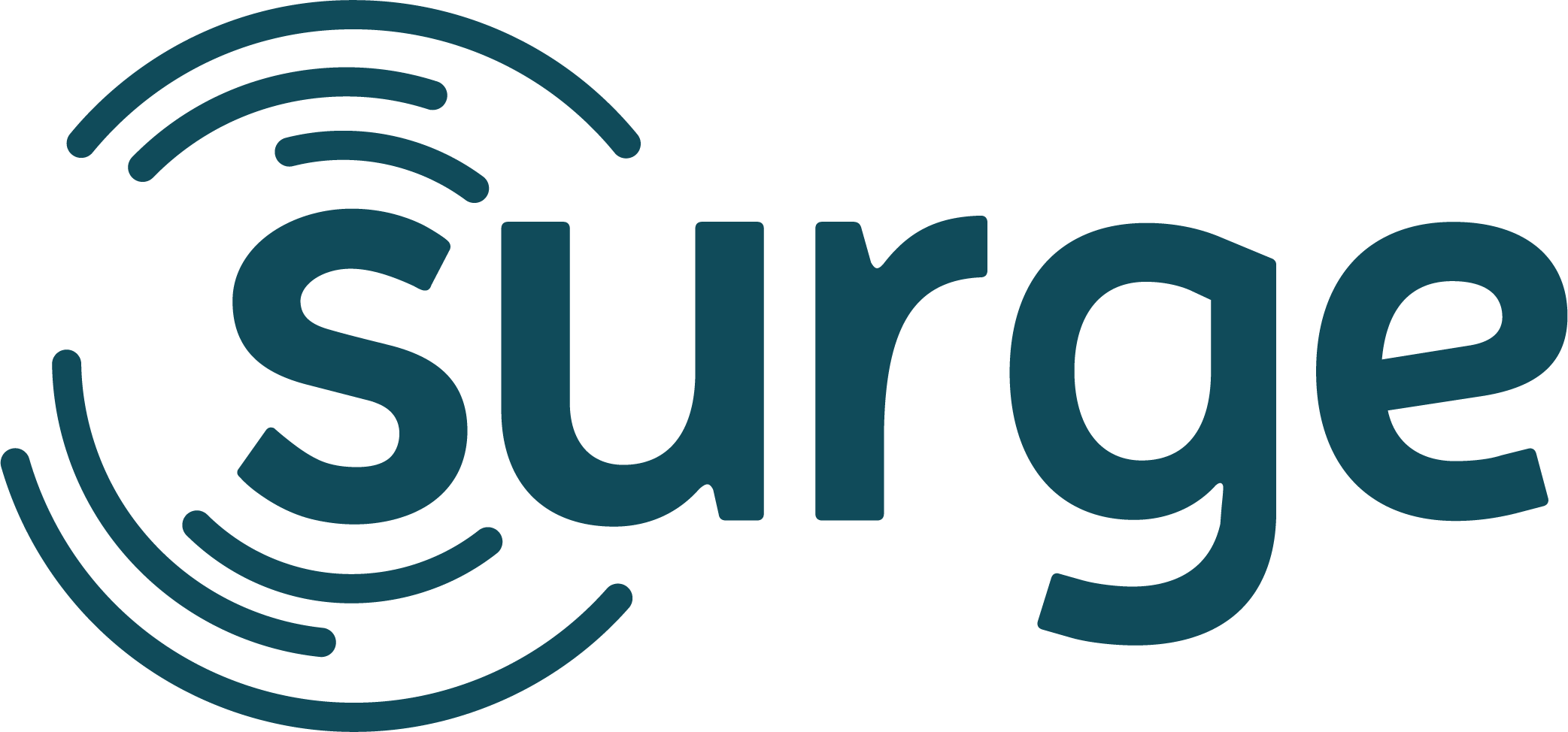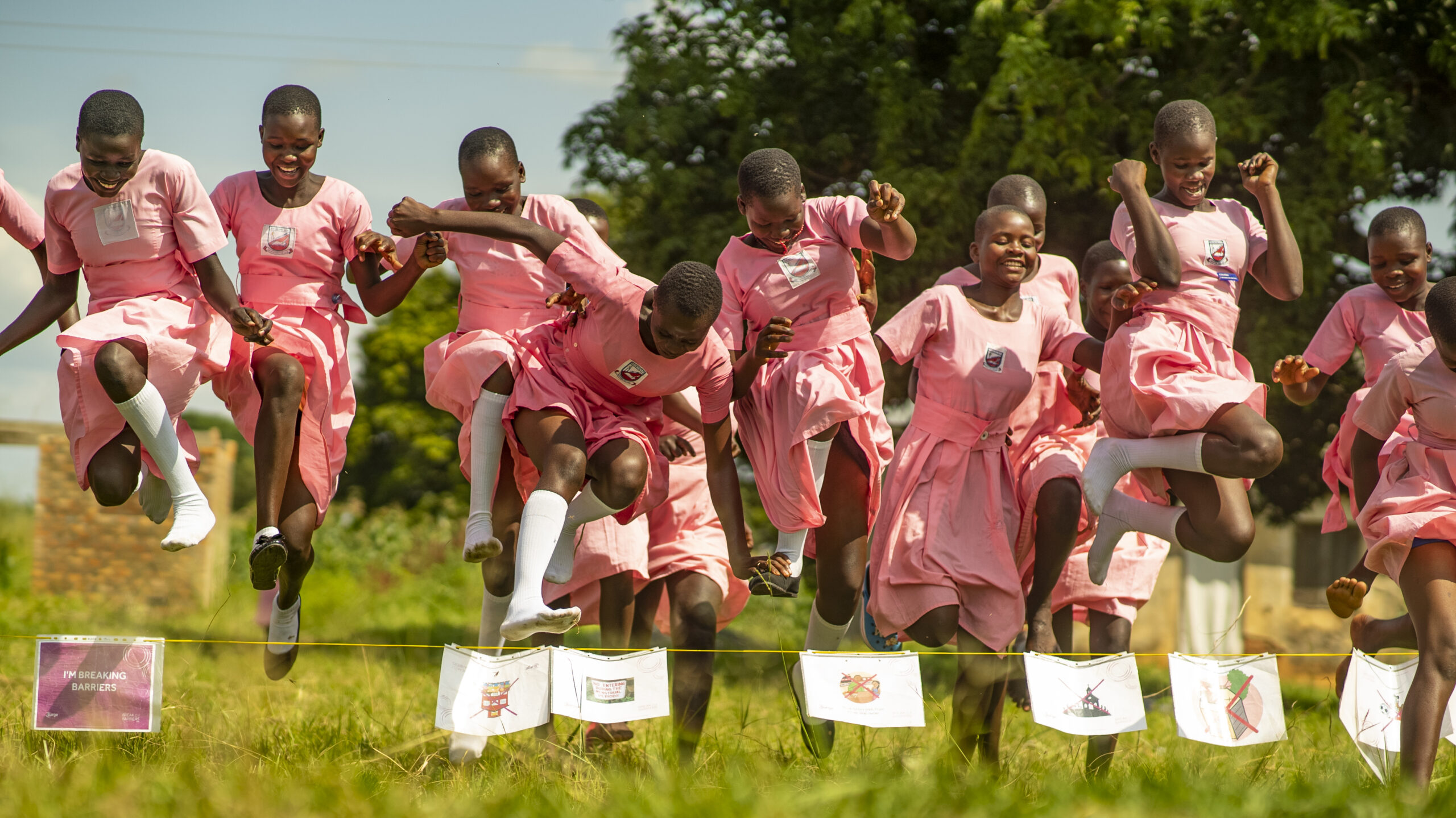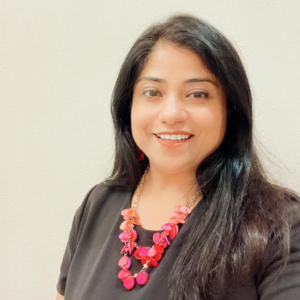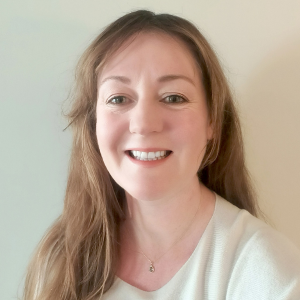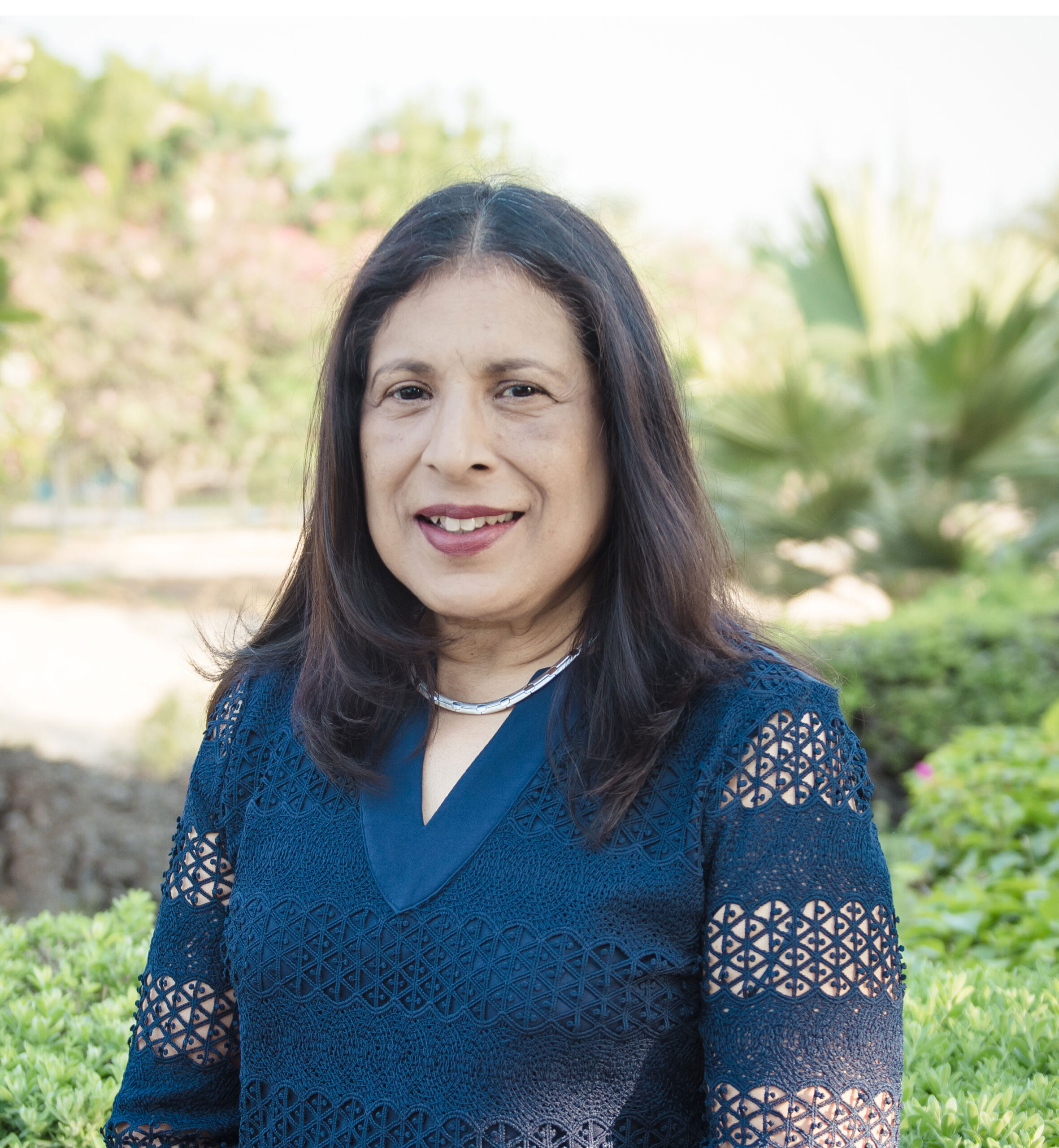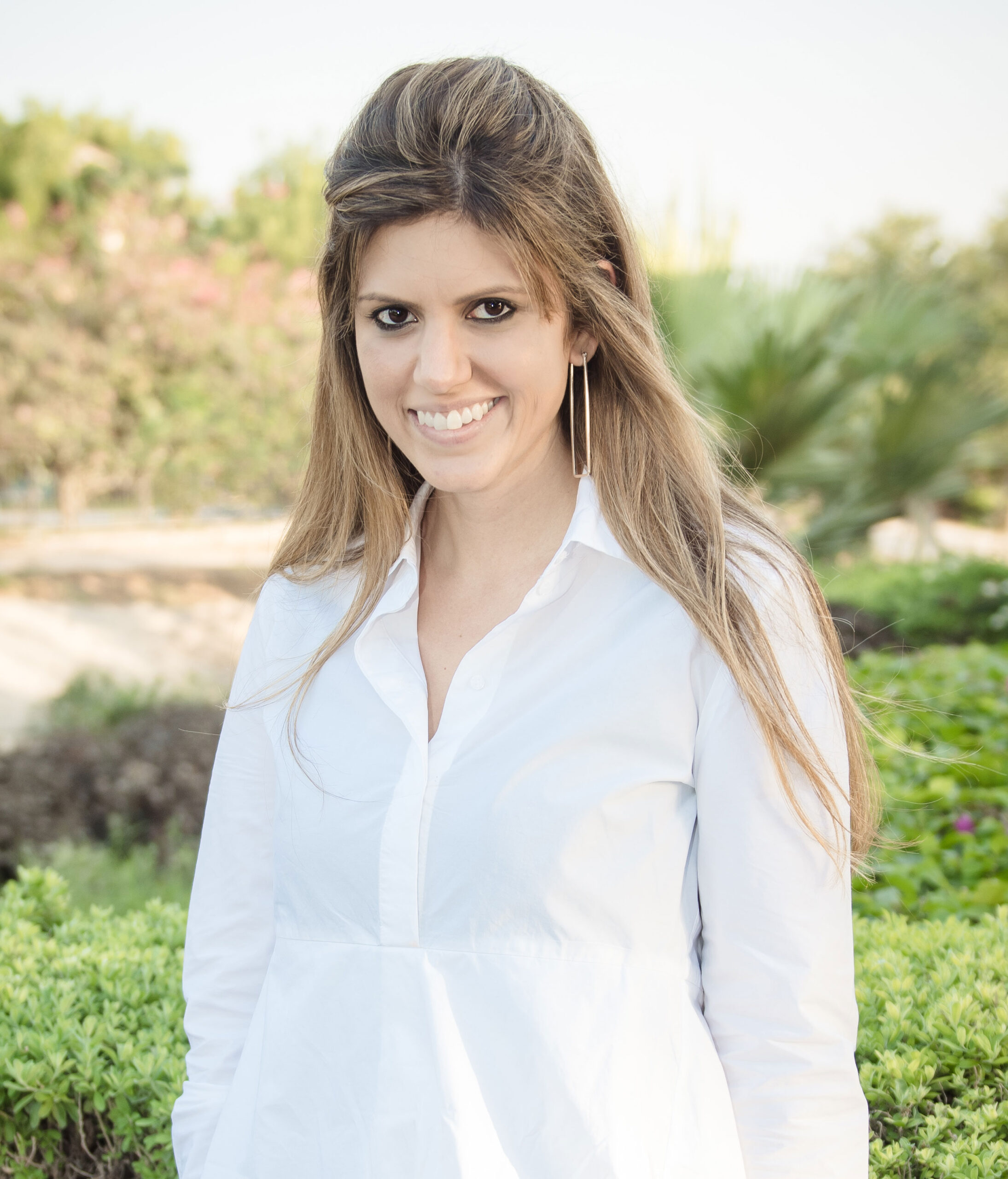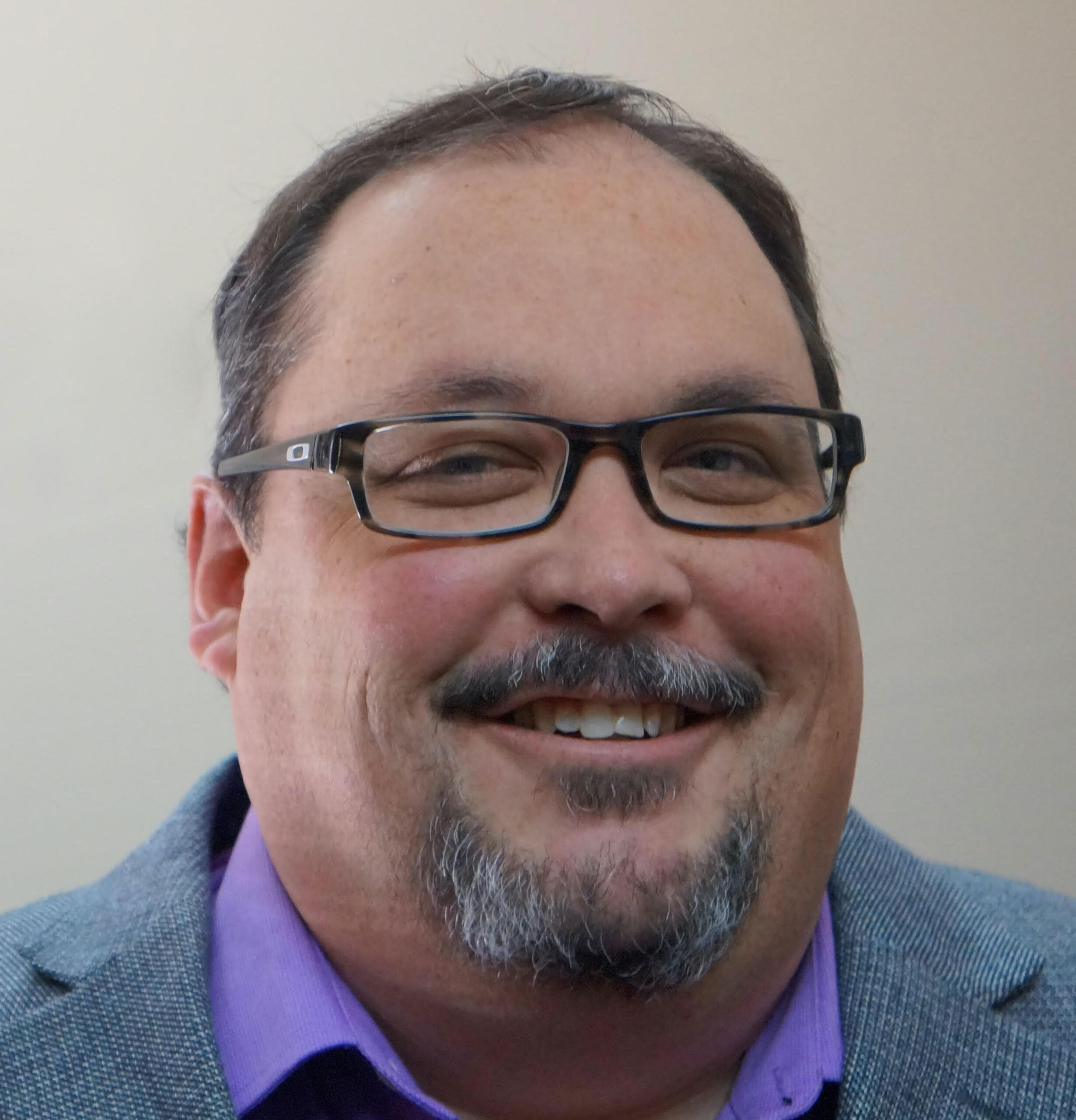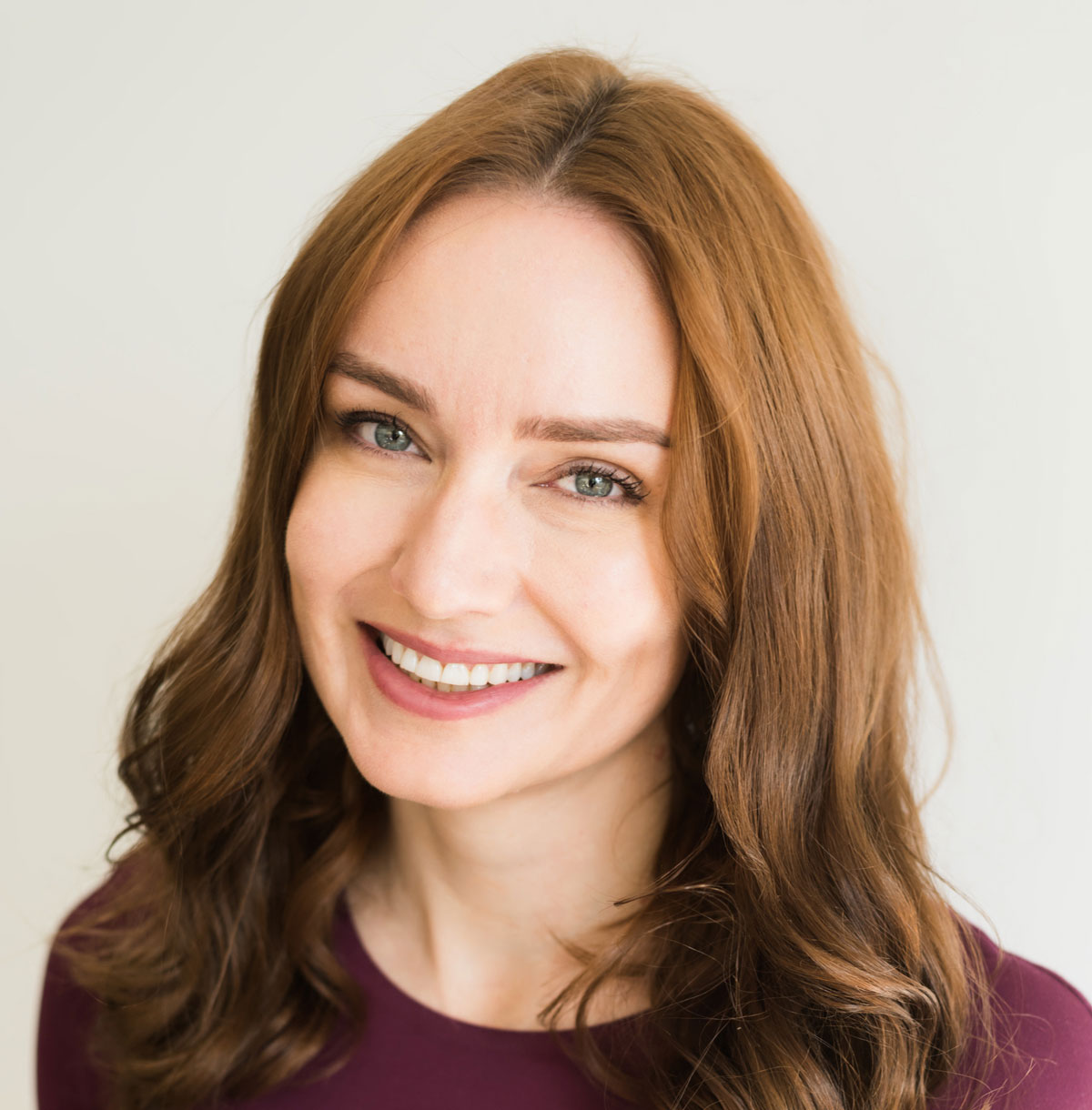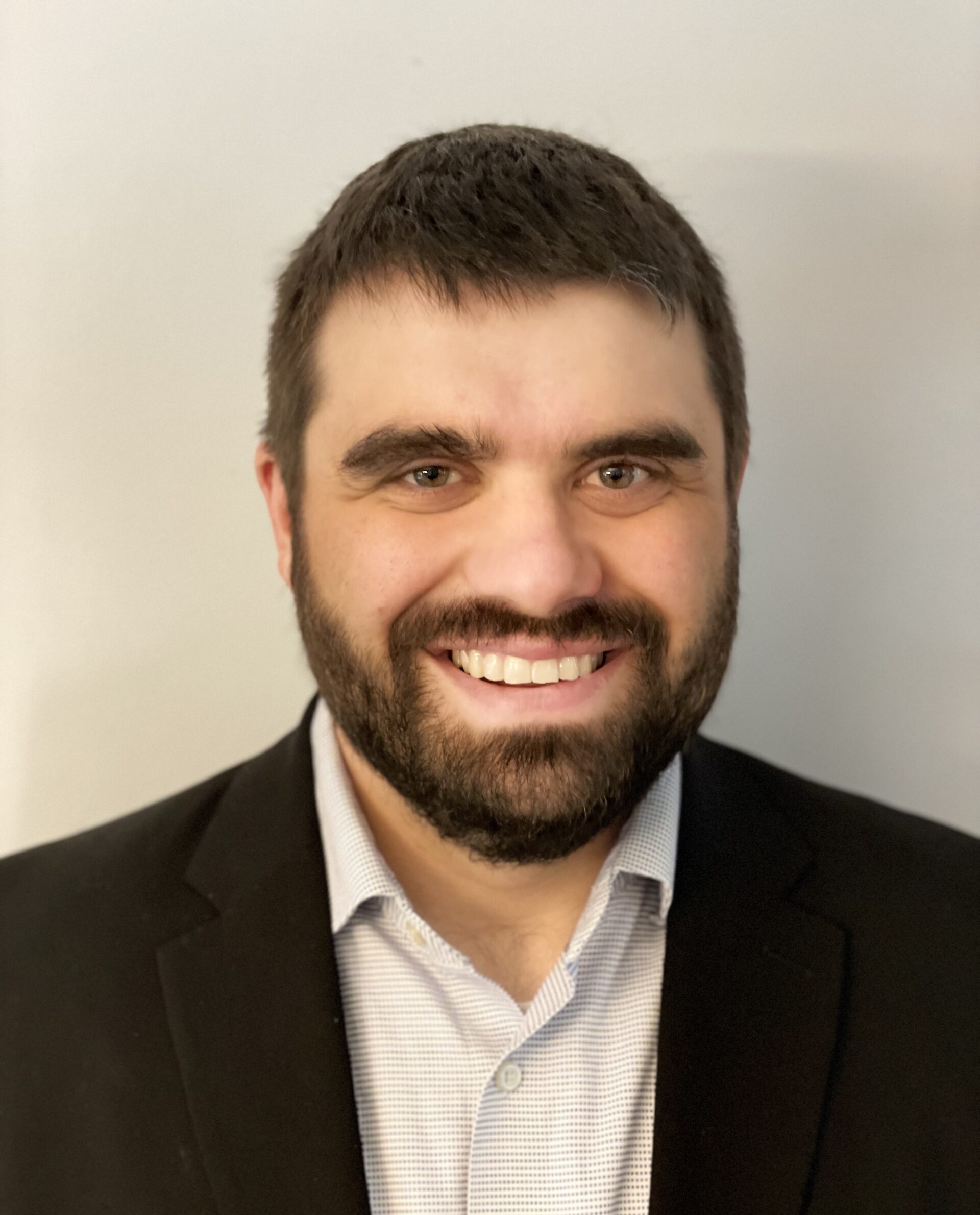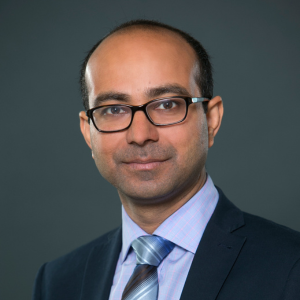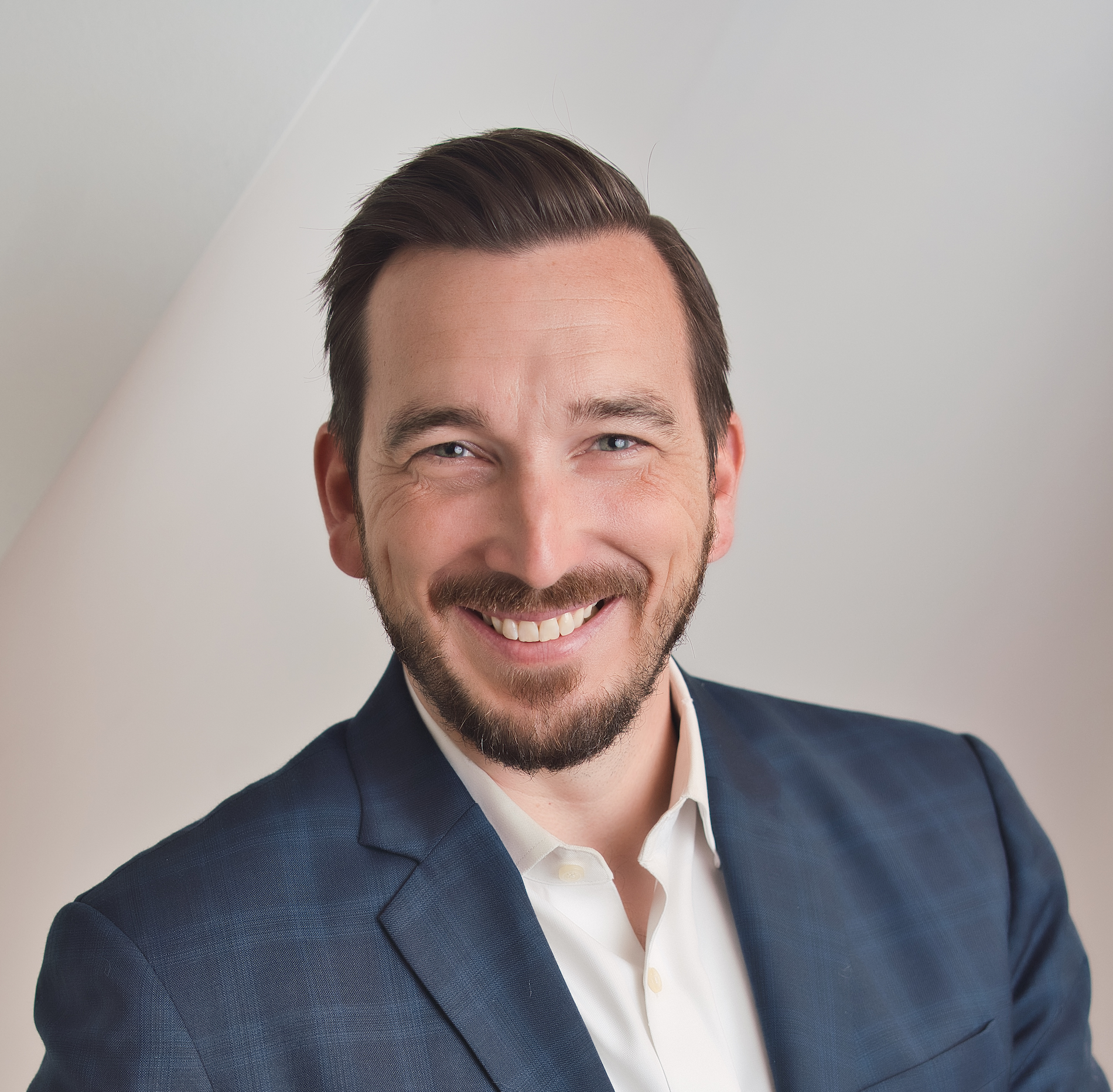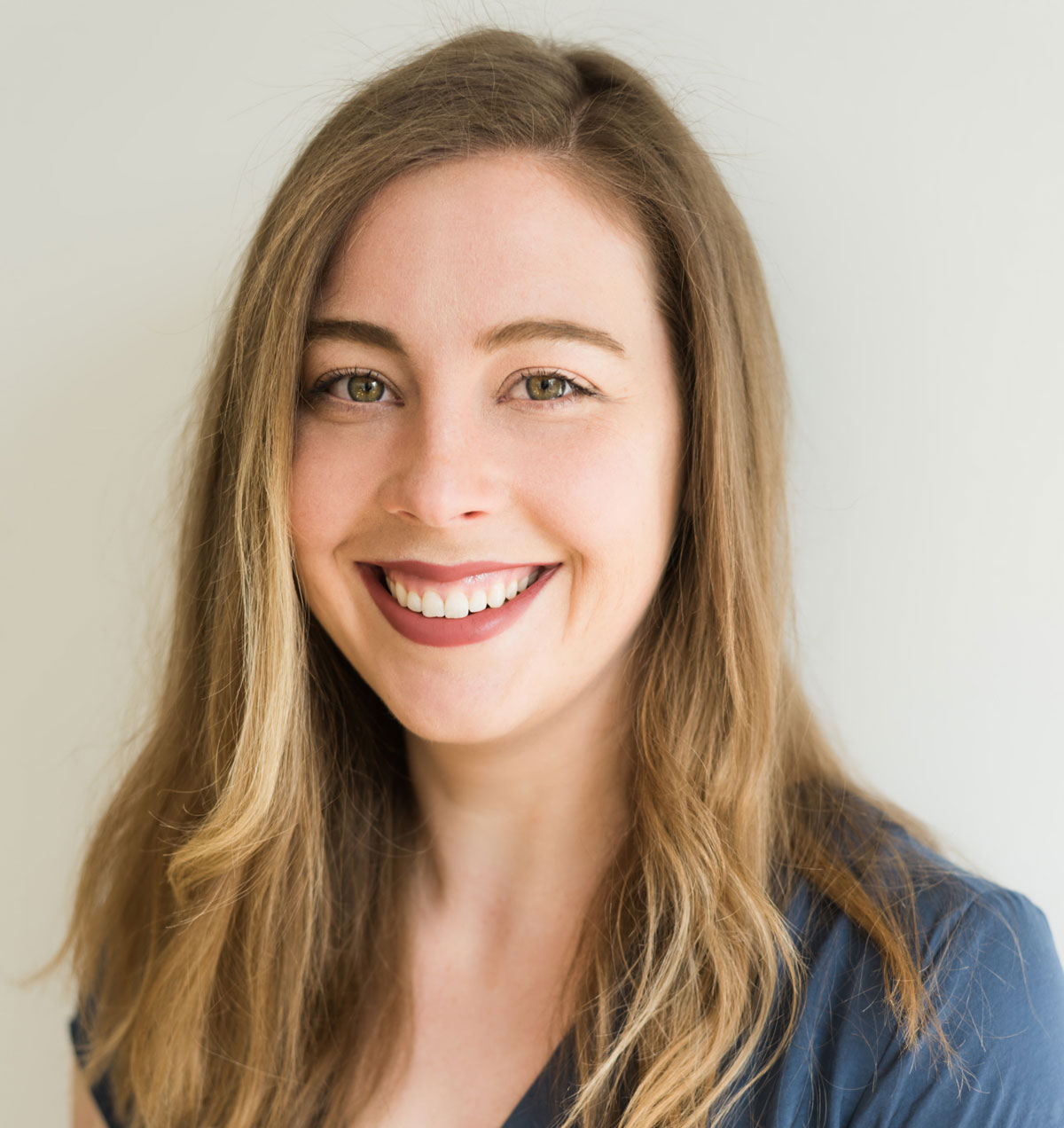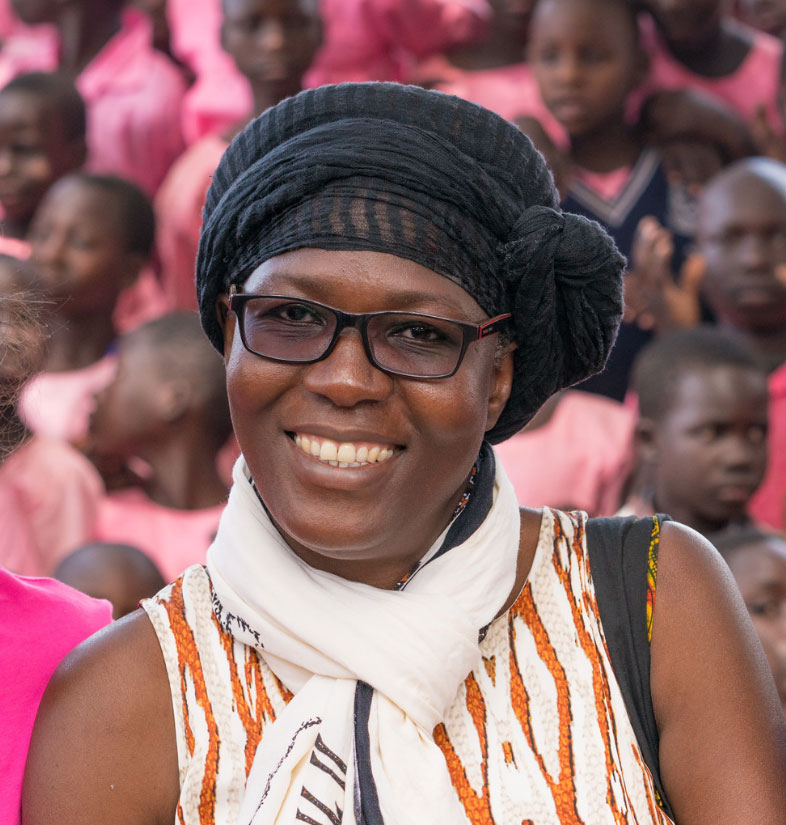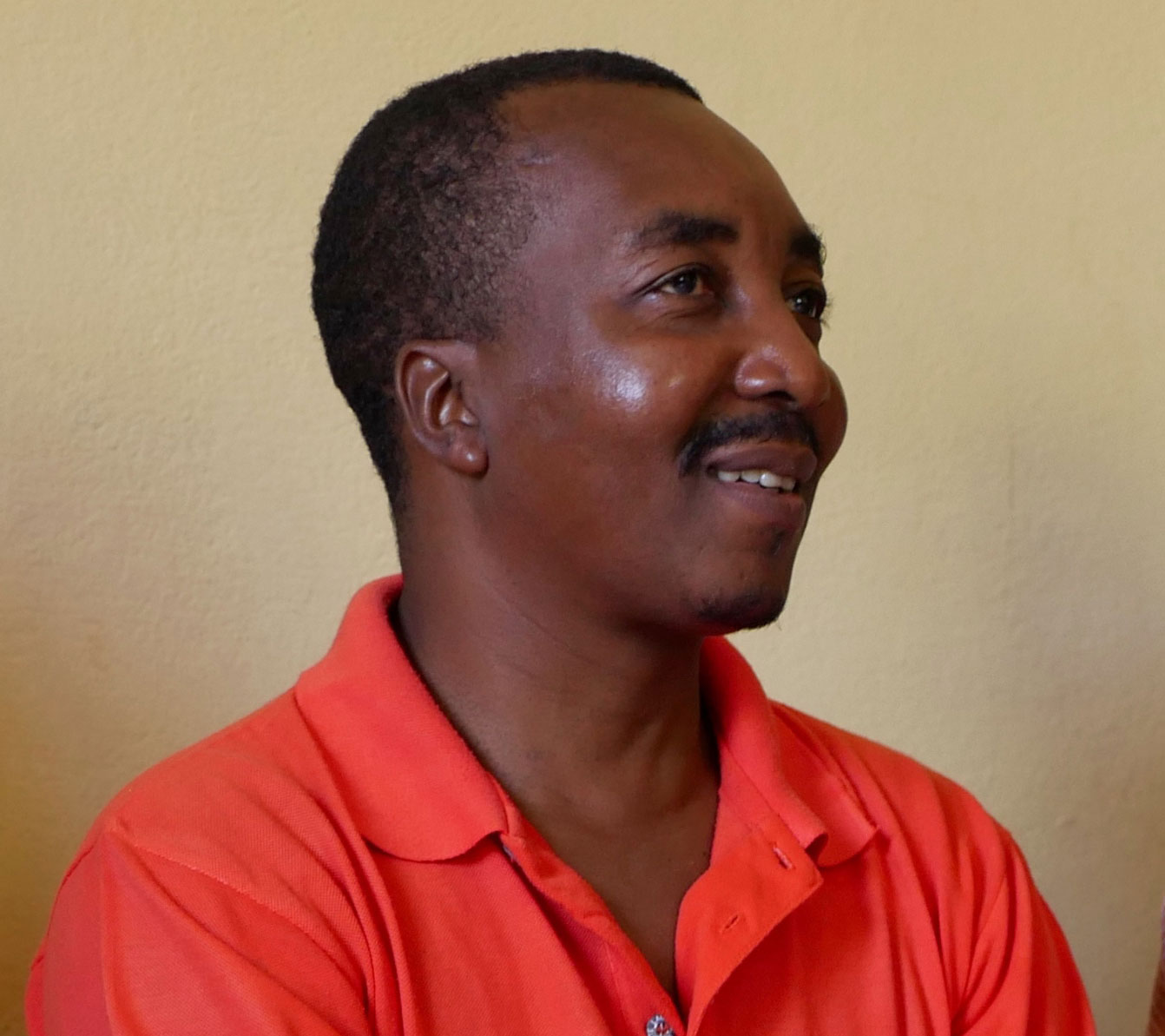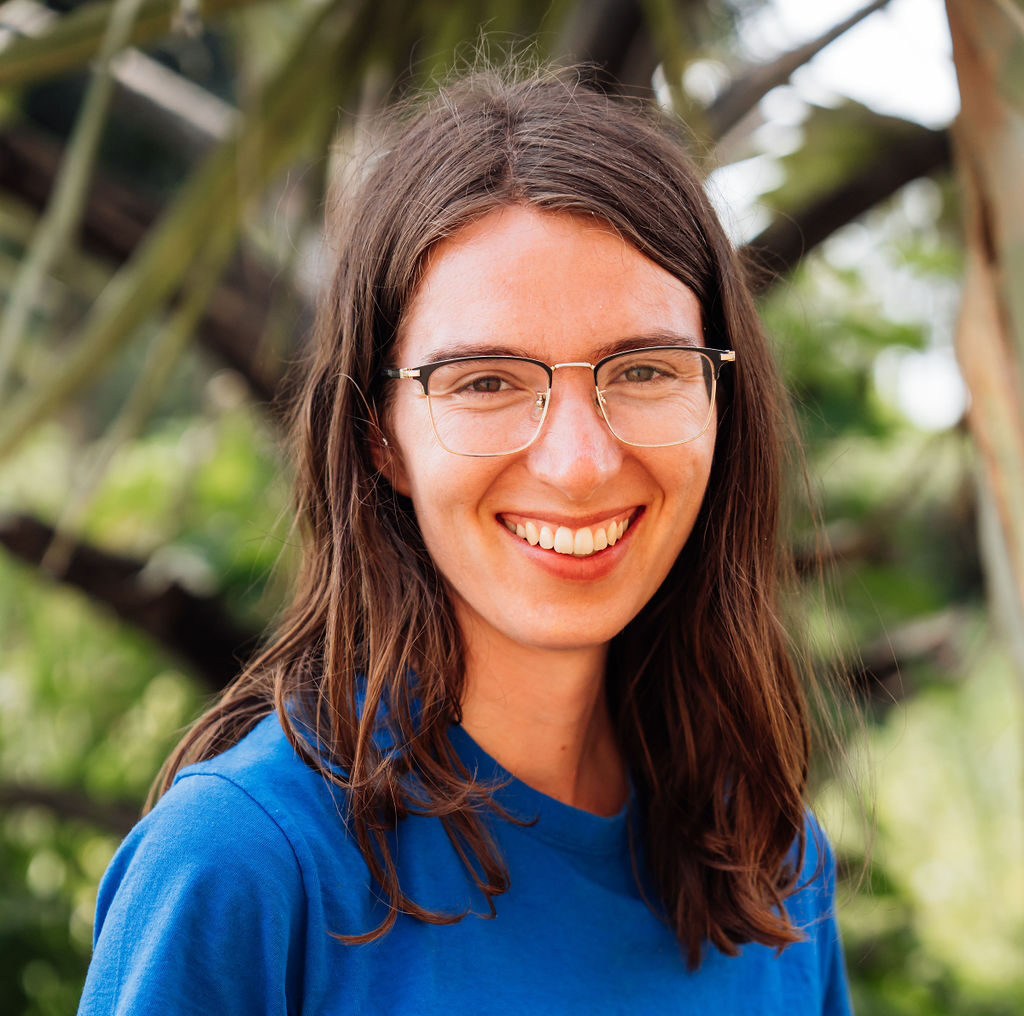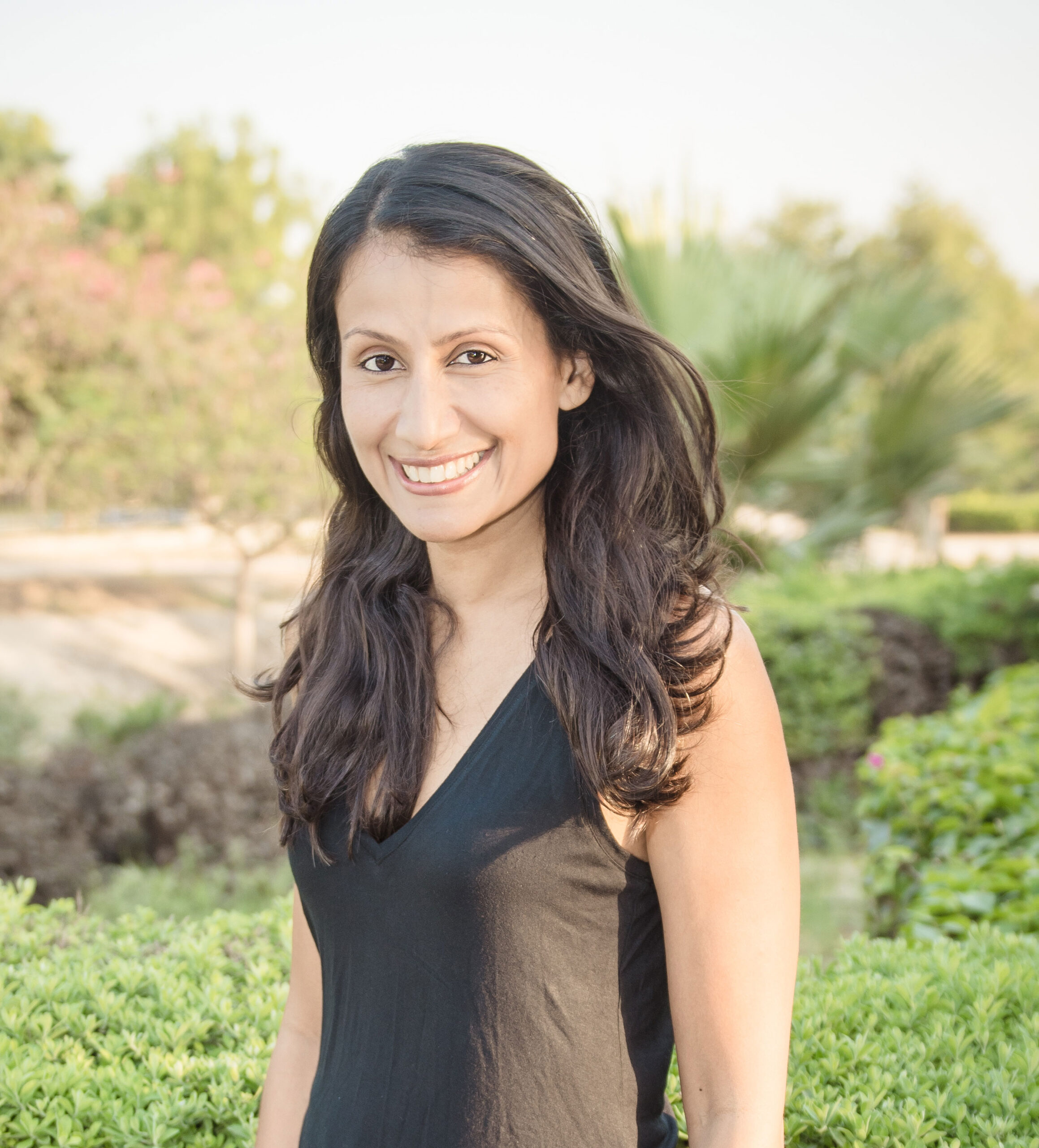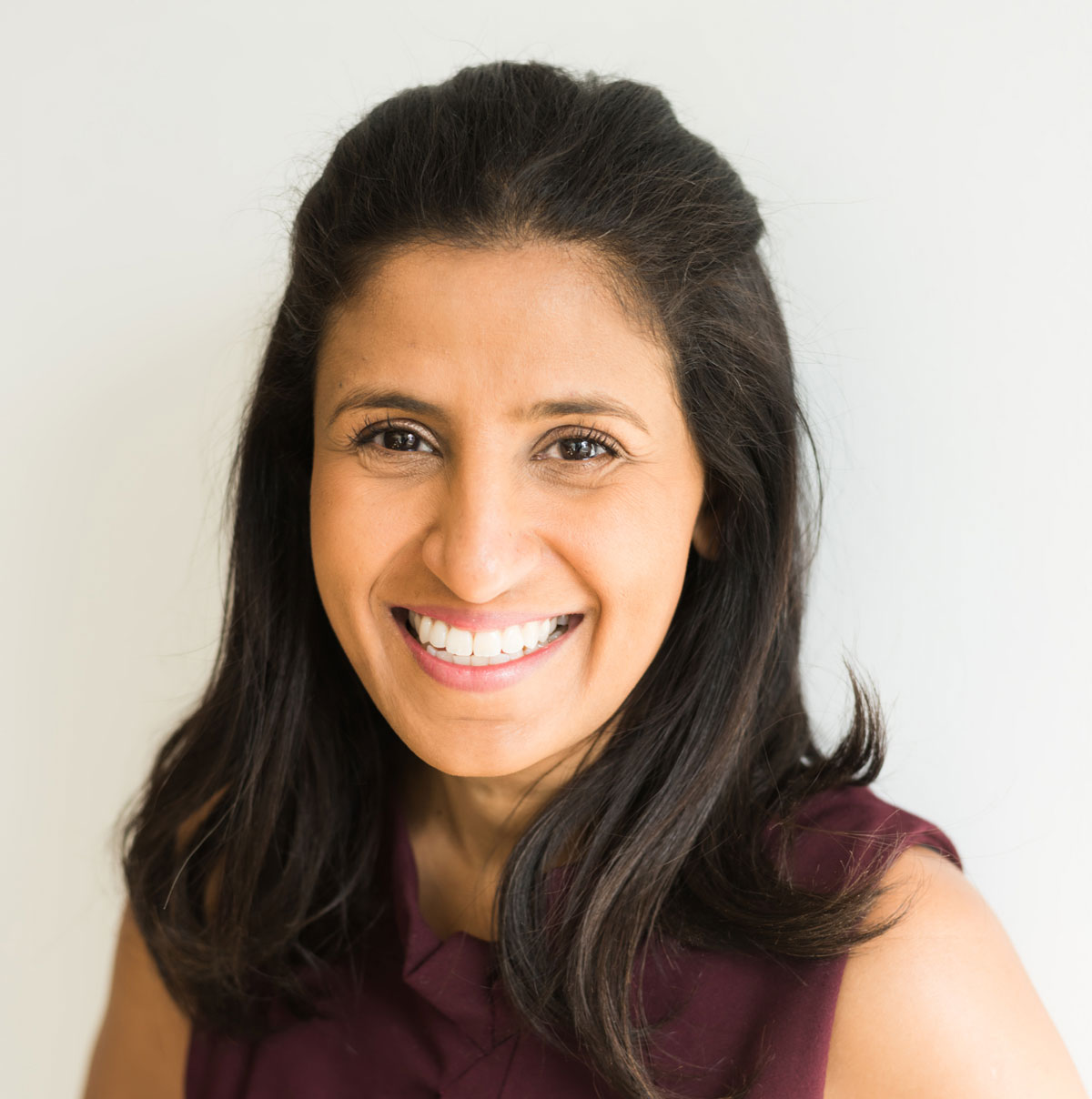This article was originally published on Onewater.
In Uganda, 65% of girls and women are unable to meet their menstrual health (MH) needs and almost a quarter of secondary school girls will drop out after they start menstruating. While the Ugandan government recognises menstrual health as a critical issue, period taboos are common throughout the country and often further the societal understanding that once a girl menstruates, she should stop attending school and focus on building a family. This is a severe issue, given that the average Ugandan is a fourteen-year-old girl.
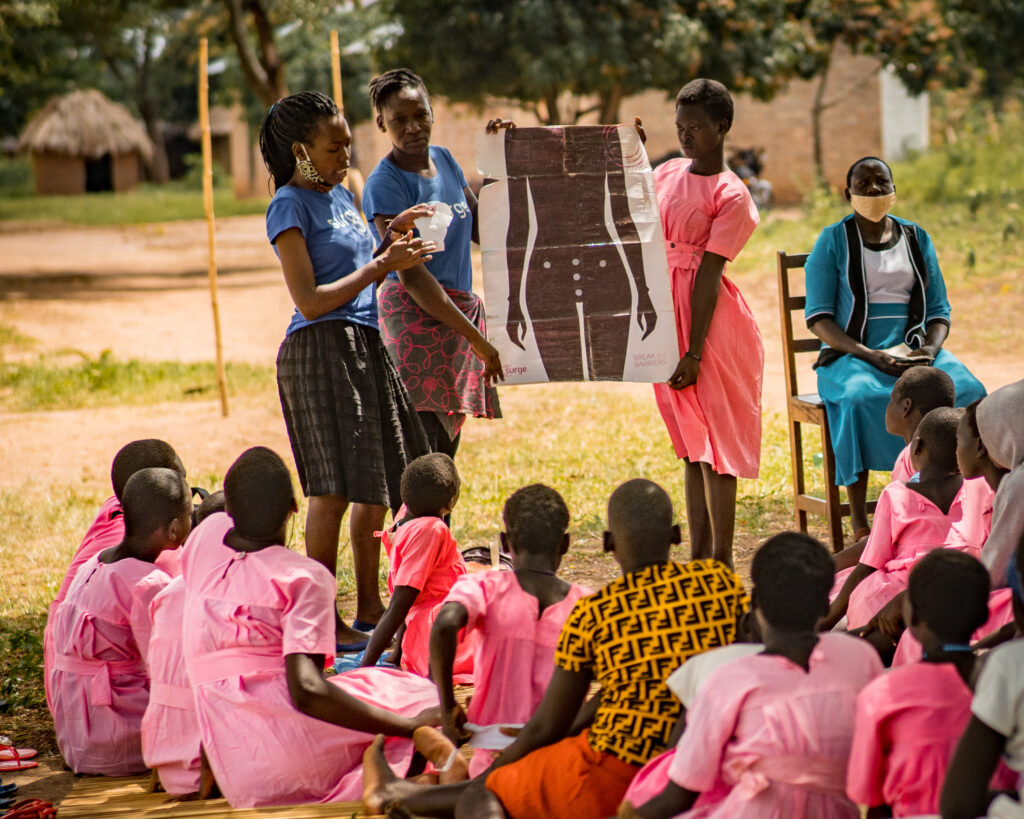
Additionally, inadequate access to decent toilets and hygiene facilities in schools leads to poor enrolment, attendance, and performance. Across Uganda, toilets at many schools are ageing and ineffective and schools may be closed due to lack of adequate sanitation for students. These poor conditions particularly impact schoolgirls as they lack access to safe, dignified spaces – especially during menstruation.
’Keeping girls engaged in school is beneficial to society as a whole – evidence shows the advantages of girls’ education in enabling women’s participation in the workforce, and how this improves GDP per capita, infant and child survival, and the education of future generations.‘ [World Bank]
However, the compounding effect of a lack of water, sanitation, and hygiene (WASH) and menstrual health (MH) solutions prevents girls from gaining education, improving their economic situation, and breaking the cycle of poverty. Uganda’s development is at risk if a lack of WASH and MH infrastructure limits a girl’s education.
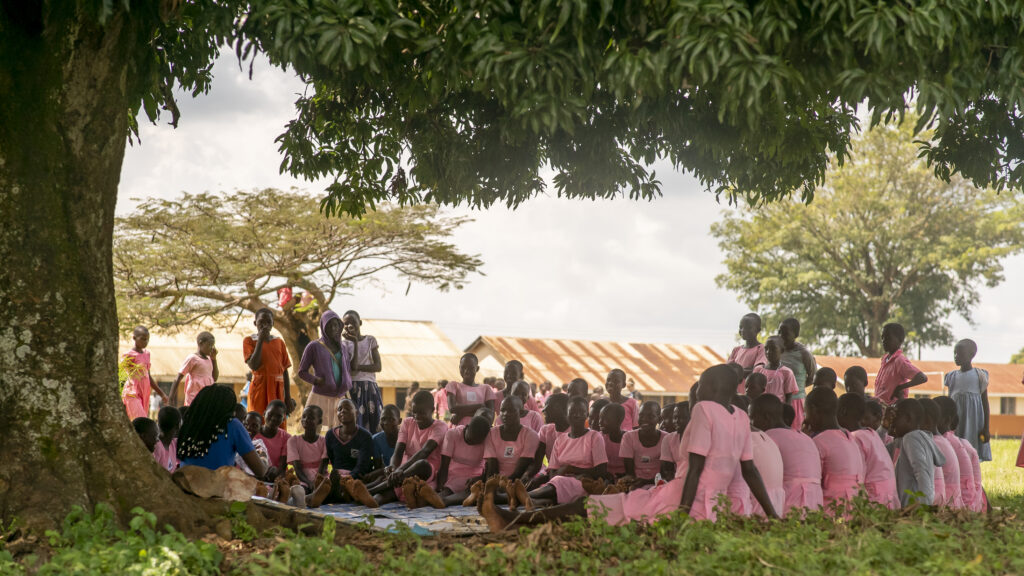
Surge for Water’s Solution – Holistic WASH and MH Solutions
Surge for Water is a women-led, community-driven organisation that invests in communities with safe water, sanitation, hygiene and menstrual health solutions to help end the cycle of poverty.
Surge’s approach towards girls’ education addresses some of the root causes of missing school days and poor school performance. By amplifying women and girls’ voices and ensuring their active role in advocating for their solutions, we can meet girls’ WASH & MH needs.
Surge’s holistic approach includes rehabilitating and drilling wells, constructing rainwater harvesting systems, installing household water filters, building school toilets, and providing education on hygiene and soap-making. While all program solutions are important, our MH program – including training on reusable pad-making and the construction of period-friendly school toilets – is among the most helpful solutions in keeping girls in school.
Since 2015, we have delivered the MH program to 23,653 girls and women in Uganda. Through this interactive, game-based program, girls learn about puberty, hygiene, health implications, overcoming taboos, pain management, and more. Additionally, students learn how to make reusable pads by hand, ensuring they have the resources needed to manage their periods.
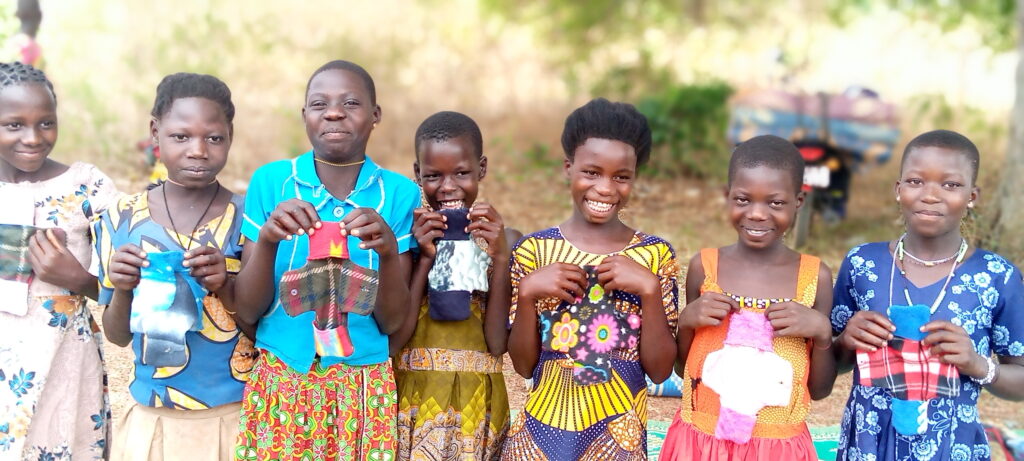
Given the societal stigma around menstruation, and to respect sensitivity, groups of 25 to 30 girls are trained outside the classroom in “safe circles” under the shade of mango trees. Sitting in a large circle on the floor replicates social situations that most of the girls are already used to in their homes and cultural gatherings, creating a comfortable, informal setting. This setting also helps differentiate the training from regular classroom environments, creating an environment for more open and safe dialogue. Additionally, the use of song, dance, games, and activities helps to further break the many barriers that limit Ugandan schoolgirls.
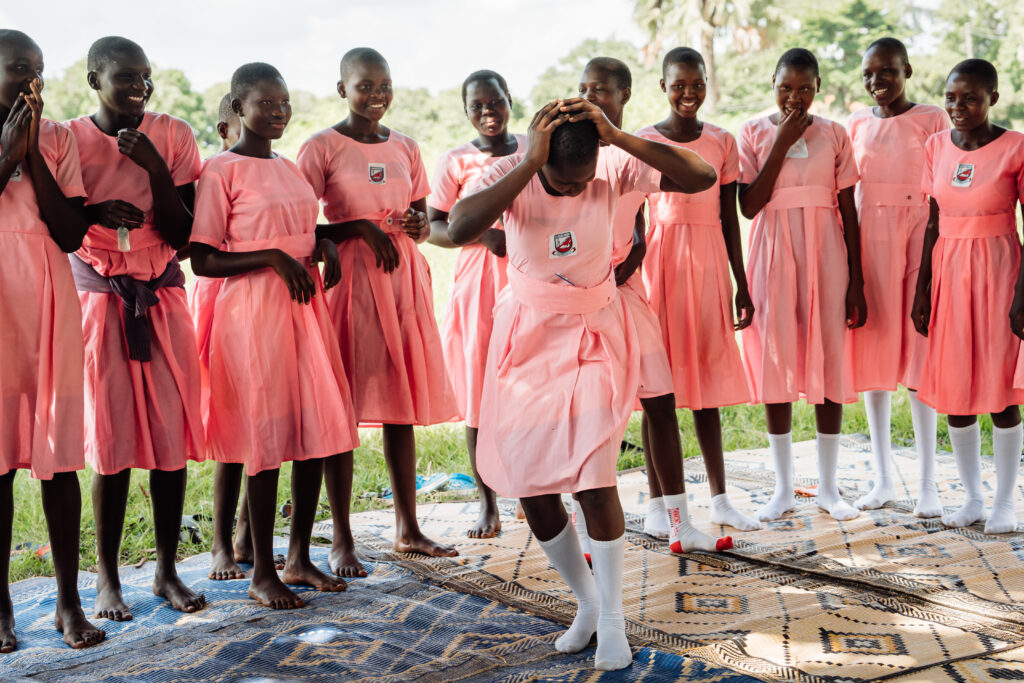
Since 2015, we have seen a 57% increase in knowledge among participants, based on pre- and post-tests given at each training session. Additionally, we have surveyed a subset of 690 girls who have undergone our training and found the following:
- 98% of girls learned something new and valuable
- 93% had their opinions on taboos change for the better
- 99% were better able to manage their menstrual cycle
- 93% felt more comfortable to talk about their period
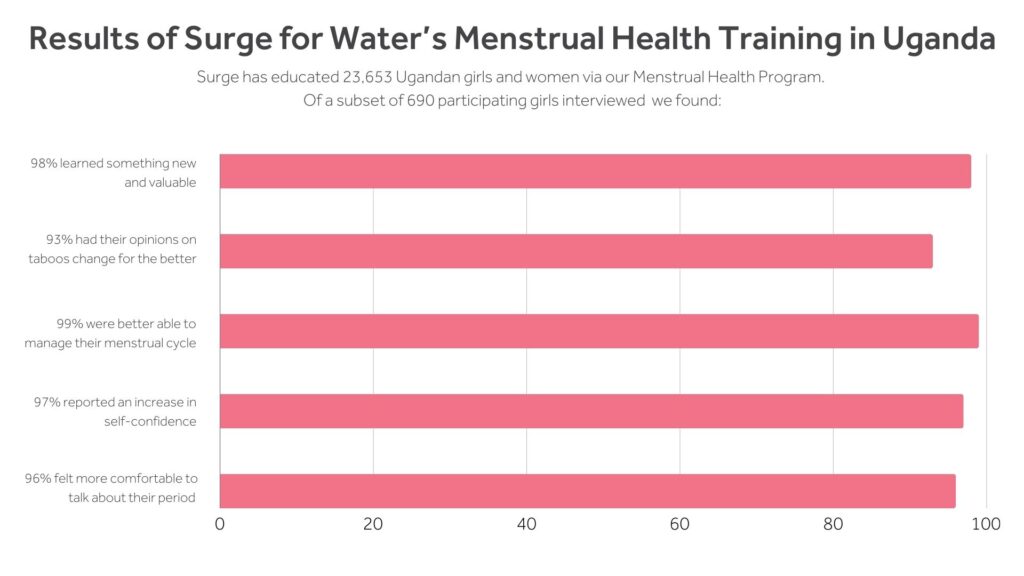
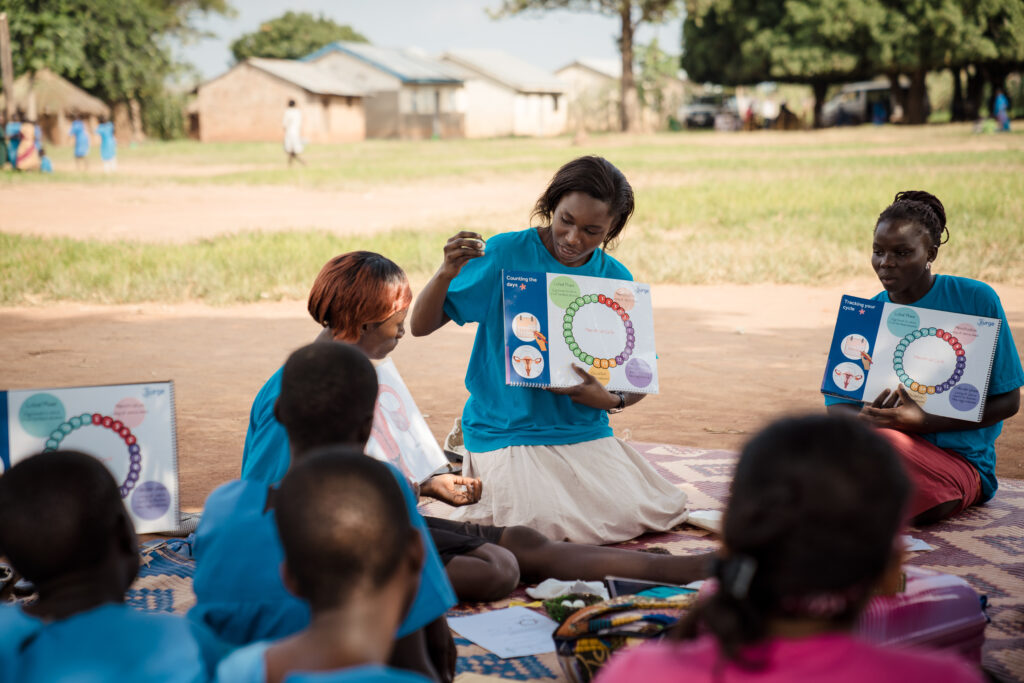
Our ultimate goal is to use the program’s success to influence local and national governments to prioritise intentional MH education and make it a mainstream educational requirement. By investing in the basic health and education of girls and women via WASH and MH solutions, we can positively impact their lives and in turn help transform their families and communities at large.
